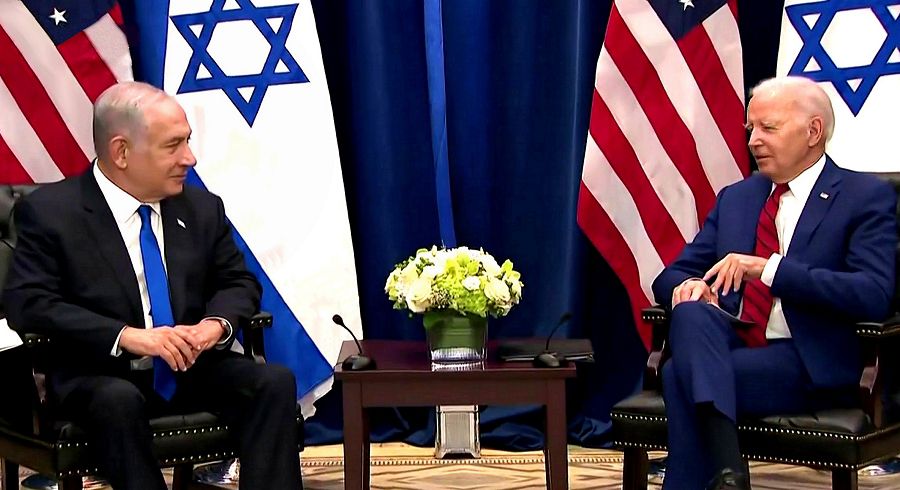UNDERSTANDING DIVERSITYBETWEEN THE UNITED STATES AND ISRAELAFTER THE IRANIAN ATTACK | |
Iranian President Ebrahim Raïssi once again warned on Tuesday that “the slightest action” by Israel against “Iran's interests” would provoke “a severe, widespread and painful response” from his country. This development raises concerns about a possible deterioration of the situation, with a significant risk of regional escalation if Israel decides to retaliate in accordance with the wishes of Prime Minister Benjamin Netanyahu. And the Israeli Prime Minister called for unity from the international community in the face of what he describes as “Iranian aggression threatening world peace”. Yet the United States, which has played an active role in defending Israeli territory attacked for the first time since 1973 by a regional state power, has declared its opposition to any escalation or expanded war with Iran. They warned that they would not participate in retaliatory action while affirming their unwavering support for Israel. An evolution of the American position? These new official statements appear to indicate an evolution in the American position with regard to the ongoing conflict. Indeed, for several weeks, differences have been increasing between the American administration and Netanyahu's government. On March 25 , the United States abstained for the first time during the vote, by the United Nations Security Council, on a resolution demanding an immediate ceasefire between Israel and Hamas as well as the release of all the hostages. A position commented on by the Israeli Prime Minister who described it as a “clear setback” harming war efforts. More recently, during a telephone exchange, Joe Biden allegedly threatened to condition aid to Israel on “tangible” measures if Israel did not change its way of conducting the war in Gaza. How can we explain this evolution in the posture of Joe Biden's United States? On the one hand, the very high human and material losses in Gaza are causing growing disapproval from public opinion even within Western countries. On the other hand, the military objectives pursued by Israel are giving rise to more and more questions and reservations. Indeed, among the Israeli war goals, that of eradicating Hamas presented as indisputable evidence is considered unrealistic by even Israel's allies. Military officials in Washington would consider that the maximalist objective set by the Israelis is not achievable as such. Furthermore, in the context of the American electoral campaign, Joe Biden has everything to lose by showing unwavering support for Israel in his speeches. Part of his electorate criticizes him for “double standards” which has also cemented an anti-Western political discourse. It is clear that the Biden administration's decision to increase humanitarian aid while continuing to provide the financial and material support necessary for the war effort creates incomprehension and frustration for part of public opinion. in the United States, particularly within the Democratic camp. Biden cannot completely ignore it and lose part of his electorate. However, the United States remains Israel's best ally since its creation. |
|
| Alyson Braxton for DayNewsWorld | |
 |
|




